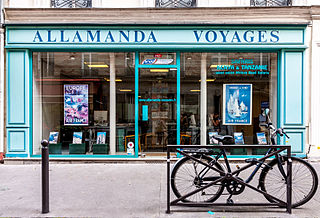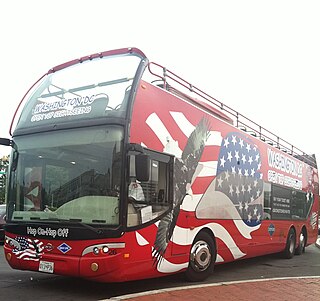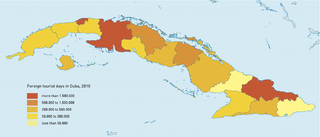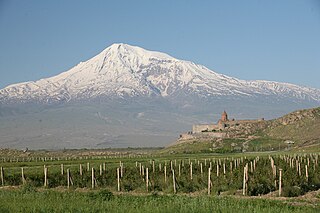Iberia, legally incorporated as Iberia Líneas Aéreas de España, S.A. Operadora, Sociedad Unipersonal, is the flag carrier of Spain. Founded in 1927 and based in Madrid, it operates an international network of services from its main base of Madrid–Barajas Airport. Iberia, with Iberia Regional and with Iberia Express, is a part of International Airlines Group. In addition to transporting passengers and freight, Iberia Group carries out related activities, such as aircraft maintenance, handling in airports, IT systems and in-flight catering. Iberia Group airlines fly to over 109 destinations in 39 countries, and a further 90 destinations through code-sharing agreements with other airlines.
Air Canada is the flag carrier and the largest airline of Canada, by size and passengers carried. Air Canada is headquartered in the borough of Saint-Laurent, Montreal, Quebec. The airline, founded in 1937, provides scheduled and charter air transport for passengers and cargo to 222 destinations worldwide. It is a founding member of the Star Alliance. Air Canada's major hubs are at Toronto Pearson International Airport (YYZ), Montréal–Trudeau International Airport (YUL), and Vancouver International Airport (YVR).

Commercial aviation is the part of civil aviation that involves operating aircraft for remuneration or hire, as opposed to private aviation.
Air Europa Líneas Aéreas, S.A.U., branded as Air Europa, is the third-largest Spanish airline after Iberia and Vueling. The airline is headquartered in Llucmajor, Mallorca, Spain; it has its main hub at Adolfo Suárez Madrid–Barajas Airport with focus city operations at Palma de Mallorca Airport and Tenerife North Airport. Air Europa flies to over 44 destinations in Spain, the rest of Europe, South America, North America, the Caribbean, Morocco and Tunisia. Since September 2007, Air Europa has been member of the SkyTeam alliance.

A travel agency is a private retailer or public service that provides travel and tourism-related services to the general public on behalf of accommodation or travel suppliers to offer different kinds of travelling packages for each destination. Travel agencies can provide outdoor recreation, arranging logistics for luggage and medical items delivery for travellers upon request, public transport timetables, car rentals, and bureau de change services. Travel agencies can also serve as general sales agents for airlines that do not have offices in a specific region. A travel agency's main function is to act as an agent, selling travel products and services on behalf of a supplier. They are also called Travel Advisors. They do not keep inventory in-hand unless they have pre-booked hotel rooms or cabins on a cruise ship for a group travel event such as a wedding, honeymoon, or other group event.

A tour operator is a business that typically combines and organizes accommodations, meals, sightseeing and transportation components, in order to create a package tour. They advertise and produce brochures to promote their products, holidays and itineraries. Tour operators can sell directly to the public or sell through travel agents or a combination of both.

Tourism in Cuba is an economic sector that generates over 4.7 million arrivals as of 2018, and is one of the main sources of revenue for the island. With its favorable climate, beaches, colonial architecture and distinct cultural history, Cuba has long been an attractive destination for tourists. "Cuba treasures 253 protected areas, 257 national monuments, 7 UNESCO World Heritage Sites, 7 Natural Biosphere Reserves and 13 Fauna Refuge among other non-tourist zones."

The Association of European Airlines (AEA) was a trade body that brought together 22 major airlines, and was the voice of the European airline industry for over 60 years. It shut down in the end of 2016.

Saudi Arabia is the second biggest tourist destination in the Middle East with over 16 million visiting in 2017. Although most tourism in Saudi Arabia still largely involves religious pilgrimages, there is growth in the leisure tourism sector. As the tourism sector has been largely boosted lately, the sector is expected to a significant industry for Saudi Arabia, reducing its dependence on oil revenues. This is proved as tourism sector is expected to generate $25 billion in 2019. Potential tourist areas include the Hijaz and Sarawat Mountains, Red Sea diving and a number of ancient ruins.
The European Travel Commission (ETC) is an international non-profit association representing the national tourism organizations (NTOs) in Europe and is based in Brussels. It was established in 1948 to promote Europe as a tourist destination to long-haul markets outside of Europe; initially the United States, then Canada, Latin America, and Asia-Pacific later on. The ETC in 2023 had 36 member NTOs and 12 associate members from the private industry. The association aims to raise awareness of the importance of tourism among national European authorities and the general public through sharing best practices and cooperation in market intelligence and promotion.

Tourism in Iran provides a range of activities from hiking and skiing in the Alborz and Zagros mountains, to beach holidays by the Persian Gulf and the Caspian Sea. The Iranian government has made efforts to attract tourists to various destinations in the country.

Tourism in Bhutan began in 1974, when the Government of Bhutan, in an effort to raise revenue and to promote Bhutanese unique culture and traditions to the outside world, opened its isolated country to foreigners. In 1974 a total of 287 tourists visited the Kingdom of Bhutan. The number of tourists visiting Bhutan increased to 2,850 in 1992, and rose dramatically to 7,158 in 1999. By the late 1980s tourism contributed over US$2 million in annual revenue.

Tourism in Armenia has been a key sector to the Armenian economy since the 1990s when tourist numbers exceeded half a million people visiting the country every year. The Armenian Ministry of Economy reports that most international tourists come from Russia, EU states, the United States and Iran. Though relatively small in size, Armenia has four UNESCO world heritage sites.

International tourism advertising is tourism-related marketing on the part of a private or public entity directed towards audiences abroad, and might target potential travelers and non-travelers alike. Wholly private firms such as travel agencies, hotel chains, cruise agencies, non-governmental organizations (NGOs) often run their own advertising campaigns to market their existence, mission, or services and/or goods offered to the consumer, and these advertisements seldom carry intentional political messages.

The American Bus Association (ABA) serves as a trade association for motorcoach operators and tour companies operating in the United States and Canada. With its headquarters situated in Washington, D.C., the association has a membership comprising approximately 1,000 companies engaged in bus operations or bus-based tours, alongside around 2,800 organizations representing the broader travel and tourism industry. Additionally, several hundred suppliers of buses and related products and services are affiliated with the ABA.
Based in the city of Buenos Aires, Destino Argentina is one of the most important boards for the tourist promotion of Argentina. Cultural centres, museums, theatres, galleries, shopping malls, vineyards, big luxury hotels and small boutique hotels, lodges, spas, gourmet restaurants, airlines, tour operators, car rental firms, media and consultancy agencies, and many other enterprises belonging to the hospitality industry are members of this non-profit organization created in 2003.

Visitors to Saudi Arabia must obtain a visa, unless they come from one of the visa exempt countries.
Visa requirements for Kiribati citizens are administrative entry restrictions by the authorities of other states placed on citizens of Kiribati. As of 2 October 2024, Kiribati citizens had visa-free or visa on arrival access to 124 countries and territories, ranking the Kiribati passport 43rd in terms of travel freedom according to the Henley Passport Index.

Kazakhstan is the ninth-largest country by area and the largest landlocked country in the world. Tourism is not a major component of the economy. As of 2014, tourism has accounted for 0.3% of Kazakhstan GDP, but the government had plans to increase it to 3% by 2020.

Uwern Jong is a British Asian entrepreneur, journalist, editor and inclusive-tourism advocate. Jong co-founded OutThere magazine in 2010.













